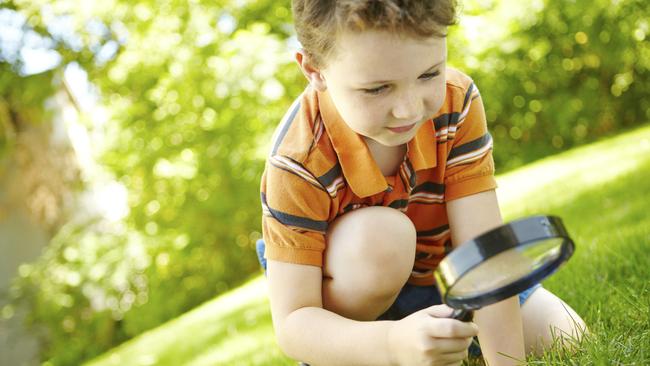How schools suppress our kids’ creativity
Universities are accused of being out of touch with what employers want but the real problem starts earlier with schools placing too much emphasis on academic subjects, writes Kylie Lang.

Rendezview
Don't miss out on the headlines from Rendezview. Followed categories will be added to My News.
While I’m relieved that my son is going back to university next week – and starting afresh after a false start in 2018 – the only thing I can be truly excited about is that he’ll be off the couch and out of the fridge.
If the experts are correct, even the best tertiary institutions are painfully out of touch with the real-world demands of employers.
We’ve all heard about the impact of digital disruption – that 40 per cent of jobs will disappear in the next decade and that newbies in the workforce will have up to 15 careers in their lifetime. But what about the irrelevance of academic teaching to the job market now, after students have hit the books and racked up a HECS debt?
Who’s holding these tertiary corporations accountable?
At a recent East Coast Forum lunch hosted by former federal MP Michael Johnson, Microsoft’s man in Queensland Brett Lightfoot painted a dismal picture.
“By the time kids graduate, much of what they’ve learnt in their degrees is redundant,” Lightfoot told the group of entrepreneurs and other professionals in the boardroom of Gadens Lawyers in Brisbane.
MORE FROM KYLIE LANG: The bludgers taking us all for a ride
This is not the first time I’ve heard such a comment. So what’s to be done?
It is deeply unsatisfactory, as an Ernst & Young survey found last year, that half of current and past university graduates feel their degree needs to be overhauled and is not relevant to their chosen career.

Tinkering with degrees, however, is not the solution.
The lightning pace of technological change will not slow down to kindly allow educators to catch up. What’s required is a comprehensive shift in the way we learn.
If all I’ve read – about what today’s employers are seeking – is true, then universities are only one part of the “disconnect” between graduates and employability.
Here are the 10 skills professionals will need to thrive in 2020 (which, gulp, happens to be next year), according to the World Economic Forum: complex problem solving, critical thinking, creativity, people management, co-ordinating with others, emotional intelligence, judgment and decision making, service orientation, negotiation and cognitive flexibility.
Note that most of these “soft” skills cannot be measured in a traditional academic sense. That doesn’t mean we ignore them. Rather, we think about what such characteristics would look like when put into practice and find new ways to assess them.
Most universities have industry partnerships so students can develop technical capabilities but soft skills cannot be taught on the job.
MORE FROM KYLIE LANG: Maths teacher drought leaving us exposed
They take years to perfect and this is where schools are failing miserably.
At the root of Australia’s employability problem is the type of schooling our kids are exposed to and socialised by from an early age.
The focus is on passing exams and meeting rigid criteria at the expense of the truly creative and independent thinking that encourages inquisitive, life-long learning.
In her book, The Power of Why, Canadian journalist Amanda Lang (no relation to yours truly), examines how curiosity and asking the right questions can lead to innovation, professional success and personal satisfaction.
“Curious kids learn how to learn, and how to enjoy it – and that, more than any specific body of knowledge, is what they will need in the future,” Lang says.
“The world is changing so rapidly that by the time a student graduates from university, everything he or she learned may already be headed toward obsolescence.
“The main thing that students need to know is not what to think but how to think in order to face new challenges and solve new problems.”
If you consider your own children, or yourself as a child, the relentless question was why.
Why do birds fly? Why are trees green? Why do I have to eat brussels sprouts when I hate them?
MORE FROM KYLIE LANG: Parents are failing their kids, and our teachers
But once kids hit school and the spotlight is on exams – NAPLAN, OP scores and ATARs – this innate inquisitiveness is all but bred out of them.
Experienced teacher Shelley Wright says by the time students reach Year 10, they have lost the curiosity they were born with. When she gets a fresh class of 15-year-olds, she begins by helping them “unlearn” a decade of conditioning.
Children should be able to ask the questions that matter to them and pursue the answers, get messy and build things, instead of being forced to rote learn and regurgitate for exams, she writes on the website Powerful Learning Practice.
Kids who are considered “academic” tend to be “good hoop jumpers” who “do well because they’ve figured out the system… rarely are they transformed by their learning”.
Those who are not academic also lose out, having been made to feel for years that they are underachievers or stupid.
This is an appalling situation we have been too slow to address.
Kids must be engaged in learning to achieve the best long-term outcomes.
While some Australian schools have cottoned on to collaborative and creative learning, a sweeping overhaul of a tired system is sorely needed to ready kids for the real world. We can’t expect universities to work miracles.
Kylie Lang is a Courier-Mail associate editor.


